Photo by Ryan Vroegindewey, USAID/Mali
303,000 MOTHERS &
5.9M CHILDREN DIE GLOBALLY EACH YEAR
including over 2.6M newborns who die in their first month and almost 1 million on their first day of life.
OUR GOAL

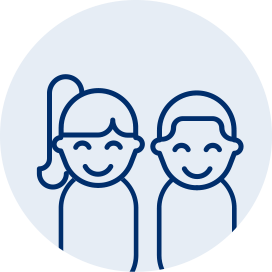
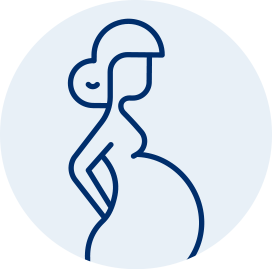
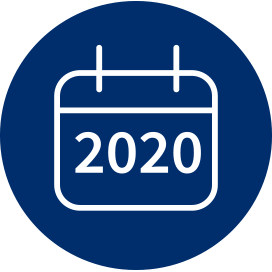
SAVE 15M CHILDREN & 600K WOMEN BY 2020
OUR APPROACH
 MATERNAL & CHILD HEALTH
MATERNAL & CHILD HEALTH
Mothers and children play invaluable roles in families, communities, societies, and economies. One million children are left motherless each year, and these children are then less likely to survive childhood.
Since 2008, USAID’s maternal and child survival efforts have saved the lives of 4.6 million children and 200,000 women in 25 priority countries.
Learn MorePhoto by Saving Mothers Giving Life
 FAMILY PLANNING
FAMILY PLANNING
An estimated 214 million women want to delay or stop childbearing but can’t access contraception. Satisfying the global unmet need for family planning could reduce maternal deaths by 30 percent.
In our priority countries, the percent of demand for family planning satisfied by a modern method has increased from 45% in 2010 to 51% in 2015.
Learn MorePhoto by USAID Nepal
 MALARIA
MALARIA
Approximately 125 million pregnant women annually are at risk of contracting malaria. USAID-supported malaria interventions are implemented to reduce maternal and child mortality.
In countries supported by the President’s Malaria Initiative (PMI), nationwide surveys show significant declines in mortality rates among children under five, ranging from 18% to 67%
Learn MorePhoto by President’s Malaria Initiative
 NUTRITION
NUTRITION
Undernutrition leads to stunting, contributing to 45 percent of child deaths. USAID supports country-owned programs to address the root causes of undernutrition and improve futures for mothers and babies.
In 2015 alone, the U.S. Government reached nearly 18 million children globally with nutrition interventions.
Learn MorePhoto by CFNA
 WATER, SANITATION & HYGIENE
WATER, SANITATION & HYGIENE
Investments in water, sanitation and hygiene empower women, increase productivity and promote gender equality. Every $1 spent on improving sanitation results in an estimated $5 of economic gain.
Since 2014, USAID’s water activities have resulted in more than 4.3 million people with improved access to sanitation facilities.
Learn MorePhoto by Morgana Wingard
BY THE NUMBERS
USAID'S IMPACT SINCE THE 2012 CALL TO ACTION

13.1M
health workers trained in maternal and child health and nutrition

5.9M
women gave birth in a health facility

6.4M
newborns reached with care after delivery

69.5M
treatments provided to children for pneumonia and diarrhea

25.3M
children vaccinated against deadly preventable diseases

5.6B
liters of water treated for consumption

27M
women reached with voluntary family planning services, annually

>12M
children reached with nutrition programs, annually
IN 2016, USAID HELPED 82 MILLION WOMEN AND CHILDREN ACCESS ESSENTIAL HEALTH SERVICES.
STORIES
Photo by Elaisha Stokes, MSH
IMPROVING NEWBORN HEALTH AT
THE DEMOCRATIC REPUBLIC OF THE CONGO
Kangaroo Mother Care incorporates continuous skin-to-skin contact to keep a premature baby warm and help them survive. USAID trains health staff to teach communities simple methods like KMC to help save the lives of premature babies in the Democratic Republic of Congo.
Read MorePhoto by USAID Afghanistan
AFGHANI WOMEN TRAINED AS MIDWIVES
Since 2002, USAID has trained thousands of Afghani women like Friba Hashimi to become nurse-midwives, providing women in their communities with modern healthcare.
Read MorePhoto by Nena Terrell/USAID Ethiopia
EMPOWERING COMMUNITIES IN ETHIOPIA TO TAKE CONTROL OF THEIR HEALTH
When an 8-month old baby was suffering from pneumonia, Tarikua was able to diagnose and treat him. The Health Extension Program in Ethiopia works with many women like Tarikua, training them to provide basic health services and help children and mothers survive and thrive.
Read MorePhoto by USAID Indonesia
BUILDING A SAFER, CLEANER LIFE IN INDONESIA
A microfinance program, supported by USAID, provides loans to families like Nurita’s so that they can build safe and hygienic bathroom facilities. With the support of USAID and others, access to water, sanitation, and hygiene services are improving the health of mothers and children in Indonesia.
Read MorePhoto by Charlotte Cerf/USAID
GIVING CHILDREN IN TANZANIA A HEALTHY START
In Tanzania, USAID has helped train 500 health providers like Tecra Chubwa on how to collect, interpret, and utilize health data – to deploy more effective immunization services to children.
Read MoreCOUNTRY UPDATES
- SELECT A COUNTRY
- Afghanistan
- Bangladesh
- Burma
- Democratic Republic of the Congo
- Ethiopia
- Ghana
- Haiti
- India
- Indonesia
- Kenya
- Liberia
- Madagascar
- Mali
- Malawi
- Mozambique
- Nepal
- Nigeria
- Pakistan
- Rwanda
- Senegal
- South Sudan
- Tanzania
- Uganda
- Yemen
- Zambia
USAID's efforts in maternal and child survival focus on 25 priority countries that account for more than 66% of global maternal and child deaths.
Afghanistan
Funded first ever Demographic and Health Survey, which provides the stakeholders with a baseline of high quality, reliable, nationally representative health, education, women’s empowerment data for future planning
Bangladesh
Through support of the Smiling Sun Network, helped deliver 40,000 babies safely, conducted over 1.6 million antenatal care visits and 275,306 post natal care visits in 2016
Burma
Completed the first-ever Demographic and Health Survey, which will provide detailed data to focus and prioritize reproductive, maternal, newborn, and child health efforts.
Democratic Republic of the Congo
Produced a newsletter to increase awareness of the Ministry of Health's ongoing reform effort and holding MOH accountable for reforms
Ethiopia
Supported the expansion of community based health insurance from 6.6 million to 11.5 million people, which, at a cost the equivalent of 2 chickens per year, enables more families to access services and prevents catastrophic costs.
Ghana
Worked with the Government to determine the most efficient routes across the country to transport medicines from the regional storehouses to the health facilities and patients.
Haiti
Reached 559,362 children under five with nutrition programs
India
Garnered $6.5 million from high profile philanthropists, corporations and foundations to contribute to 20 high impact, scalable RMNCH+A programs will reach an adolescent population of 6 million with adolescent friendly health clinics
Indonesia
In hospitals supported by USAID, supported nearly 100% achievement of women receiving magnesium sulfate to help stabilize those suffering from pregnancy related high blood pressure and seizures
Kenya
Treated 1.1 million children under-5 with oral rehydration solution for diarrheal disease, which is 40% higher than the annual target
Liberia
Developed an integrated human resource information system to assist the MoH in tracking health workforce and ensures adequate staff to deliver quality health services to women and children.
Madagascar
Protected 11.2 million people from malaria through insecticide treated nets
Mali
Through the Helping Babies Breathe program, trained providers who saved the lives of 13,444 babies who were not breathing at birth
Malawi
Provided scholarships to 620 Malawians pursuing public health studies
Mozambique
Increased access to voluntary family planning by working to include injectable contraceptives and implants into the package of contraceptives available to clients, and influencing policy to allow community health workers to provide injectable contraceptives.
Nepal
Supported to MoH to hire critical staff to deliver quality family planning and maternal health services in hard to reach rural and remote places
Nigeria
Provided basic emergency obstetric and newborn care training for 717 health care workers from October 2015 to September 2016 to increase knowledge and their ability to provide quality, evidence based services
Pakistan
Through training community health workers, reached 2.5 million women with maternal and child health and family planning messages, which resulted in 41,000 referrals to public sector health facilities
Rwanda
Through trainings, increased the use of kangaroo mother care from 28 to 42% in one year and postnatal care from 38 to 45%
Senegal
Supported 964 communities to establish emergency transport systems for women who experience crises during pregnancy and labor and need urgent referral to high level health facilities
South Sudan
Trained health workers and intensified surveillance and community awareness to control cholera and measles outbreaks
Tanzania
Through the Reach Every Child Strategy, reduced the total number of unvaccinated children from 75%, from 11,700 to 3,000 in one year
Uganda
Designed a national communications program to address people's misperceptions about family planning, including fear of side effects and other health concerns
Yemen
Zambia
Disinfected over 305 trillion liters of water, resulting in the reduction of diarrhea and improving overall health







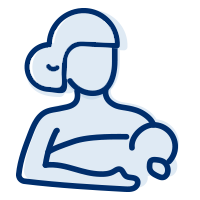
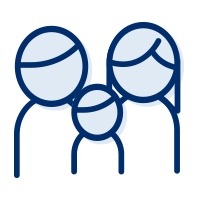

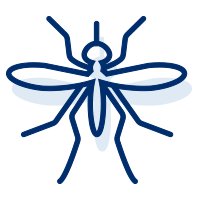

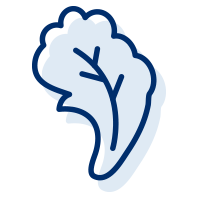

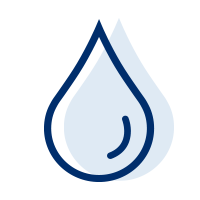

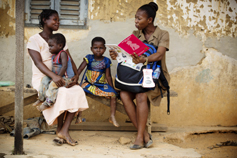
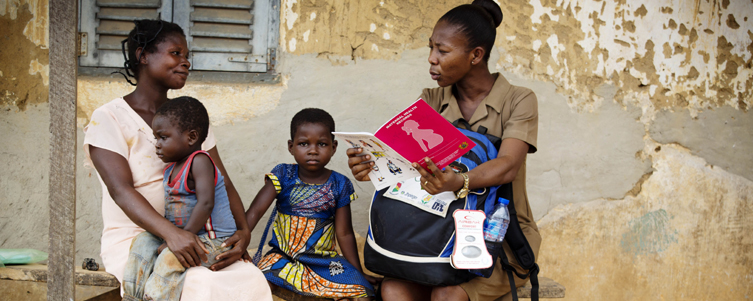
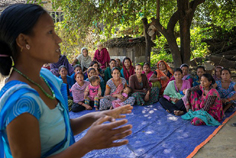
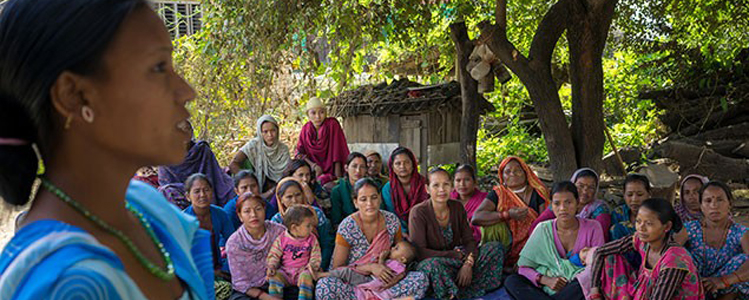

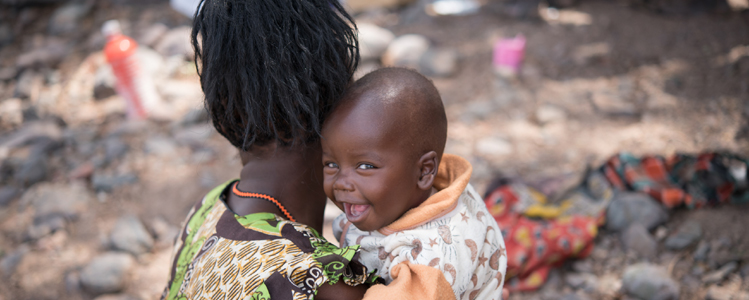
Comment
Make a general inquiry or suggest an improvement.